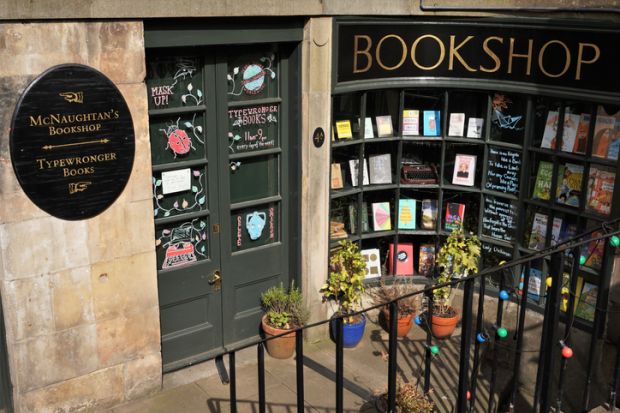A new university press created by Scottish institutions is offering to publish free-to-read books for about a third of the price charged by commercial publishers.
This month Scottish Universities Press (SUP), which was established last year by 18 academic libraries in Scotland, launched its first open call for book proposals, including edited collections and monographs.
Academics at participating institutions will be able to publish books for a production charge between £3,500 and £5,500, which SUP says is “significantly lower” than the book publishing charges offered by commercial publishers, which can range from £9,000 to £15,000.
The creation of the new university press, which is coordinated by the Scottish Confederation of University and Research Libraries (SCURL), comes ahead of new UK Research and Innovation (UKRI) rules that, from January 2024, will require monographs to be made open access within 12 months of publication if the research is publicly funded.
With researchers required to make monographs open access, the not-for-profit university press may help Scottish universities to save millions of pounds a year – with SCURL members currently paying £30 million a year for access to electronic resources, explained Dominique Walker, SUP’s publishing officer.
“If commercial publishers are charging £10,000 to make a book open access, we are hoping to provide a different open access route to help those affected by UKRI’s new policies, and also save universities a lot of money in the long term,” said Ms Walker.
The new academic press, which is already assessing pitches for books nearing completion that will be ready for publication in 2023-24, will also create opportunities for scholars to publish their work in a longer form, added Ms Walker.
“As a not-for-profit, we don’t have the same limitations on what we can publish – we can publish things that might not be as commercially viable [with a traditional publisher] or we think about helping early career researchers to find an audience,” she said.
The creation of Scotland’s new university press, which is also seeking peer reviewers, follows the creation of a number of similar open access presses owned by universities. These include UCL Press, which began in 2015 and whose books have been downloaded more than 6 million times, LSE Press, which started in 2018, and White Rose University Press, which was jointly established by the universities of Leeds, Sheffield and York in 2016.
Aberdeen University Press – one of Scotland’s other university presses, along with Edinburgh’s – was relaunched in 2022 as an open access publisher, having been founded in 1900.
SUP, which is supported by subscriptions from member institutions and controlled by a 14-strong editorial board, will initially focus on open access monographs but aims to publish journal papers and textbooks from next year.
“This is a university press with academics at its heart,” said Ms Walker. “Since we started, many people have been in touch to say this is an idea that’s been floating around for some years and they’re happy to see this type of open access publishing has finally arrived.”
Register to continue
Why register?
- Registration is free and only takes a moment
- Once registered, you can read 3 articles a month
- Sign up for our newsletter
Subscribe
Or subscribe for unlimited access to:
- Unlimited access to news, views, insights & reviews
- Digital editions
- Digital access to THE’s university and college rankings analysis
Already registered or a current subscriber? Login








